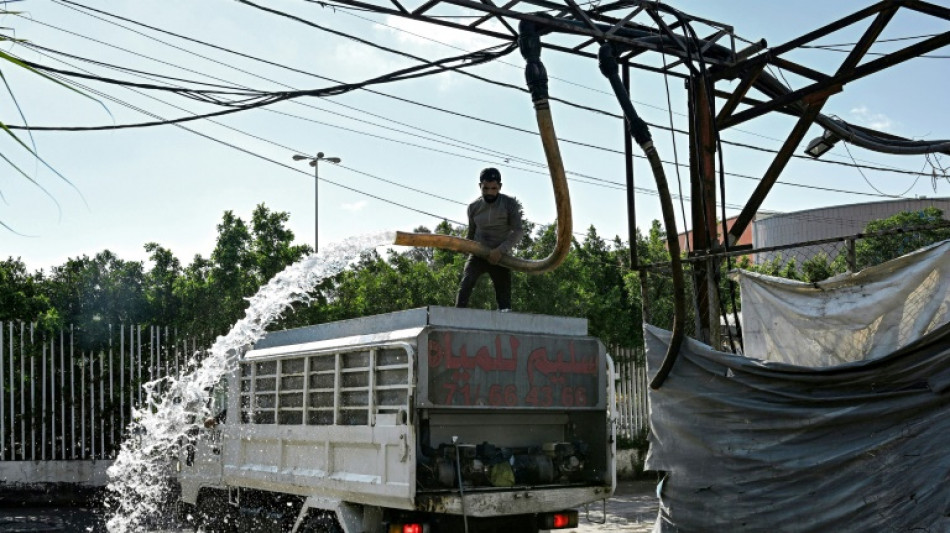
-
 'Everything was removed': Gambians share pain with FGM ban in balance
'Everything was removed': Gambians share pain with FGM ban in balance
-
Kim Jong Un opens rare party congress in North Korea

-
 Ex-Philippine leader Duterte faces pre-trial ICC hearing
Ex-Philippine leader Duterte faces pre-trial ICC hearing
-
Japanese star Sakamoto 'frustrated' at missing Olympic skating gold

-
 Japan inflation eases in welcome news for Takaichi
Japan inflation eases in welcome news for Takaichi
-
FIFA to lead $75m Palestinian soccer rebuilding fund

-
 Chicago Bears take key step in proposed Indiana stadium move
Chicago Bears take key step in proposed Indiana stadium move
-
Liu captures Olympic figure skating gold as US seal hockey glory

-
 North Korea opens key party congress
North Korea opens key party congress
-
Los Angeles sues Roblox over child exploitation claim

-
 Golden Liu puts US women back on top of Olympic women's figure skating
Golden Liu puts US women back on top of Olympic women's figure skating
-
Hodgkinson sets women's 800m world indoor record

-
 USA's Alysa Liu wins Olympic women's figure skating gold
USA's Alysa Liu wins Olympic women's figure skating gold
-
Man Utd cruise into Women's Champions League quarters

-
 Gu reaches Olympic halfpipe final after horror crash mars qualifiers
Gu reaches Olympic halfpipe final after horror crash mars qualifiers
-
Keller overtime strike gives USA Olympic women's ice hockey gold

-
 NASA delivers harsh assessment of botched Boeing Starliner test flight
NASA delivers harsh assessment of botched Boeing Starliner test flight
-
US Fed Governor Miran scales back call for rate cuts this year

-
 Gu qualifies for Olympic halfpipe final marred by horror crash
Gu qualifies for Olympic halfpipe final marred by horror crash
-
Trump issues Iran with ultimatum as US ramps up military presence

-
 Peru's brand-new president under fire for child sex comments
Peru's brand-new president under fire for child sex comments
-
UK police hold ex-prince Andrew for hours in unprecedented blow

-
 Former Olympic freeski halfpipe champion Sharpe crashes heavily
Former Olympic freeski halfpipe champion Sharpe crashes heavily
-
Former Olympic champion Sharpe suffers heavy halfpipe crash

-
 Belarus says US failed to issue visas for 'Board of Peace' meeting
Belarus says US failed to issue visas for 'Board of Peace' meeting
-
Forest boss Pereira makes perfect start with Fenerbahce rout in Europa play-offs

-
 Alcaraz fights back to book last four berth in Qatar
Alcaraz fights back to book last four berth in Qatar
-
England captain Itoje warns of 'corrosive' social media after abuse of Ireland's Edogbo

-
 War-weary Sudanese celebrate as Ramadan returns to Khartoum
War-weary Sudanese celebrate as Ramadan returns to Khartoum
-
Townsend expects recalled Scotland duo to shine in Six Nations clash with Wales

-
 Peru's new president under fire for child sex comments
Peru's new president under fire for child sex comments
-
UK king opens London fashion week despite brother's arrest

-
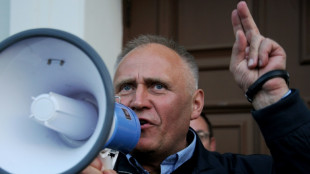 Belarus frees opposition politician Statkevich
Belarus frees opposition politician Statkevich
-
Striking Argentine workers slow down Buenos Aires in protest over labor reforms
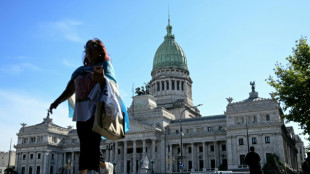
-
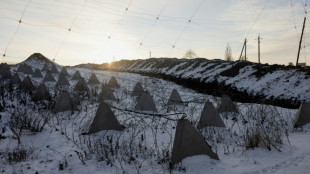 Starlink loss a blow to Russian forces in Ukraine: experts
Starlink loss a blow to Russian forces in Ukraine: experts
-
UN's Sudan probe finds 'hallmarks of genocide' in El-Fasher
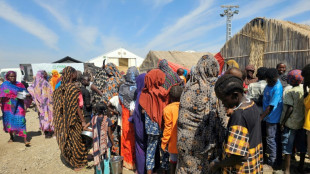
-
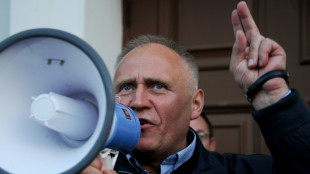 Belarus frees opposition politician Statkevich: wife
Belarus frees opposition politician Statkevich: wife
-
Rocket re-entry pollution measured in atmosphere for first time

-
 Airbus ready to build two new European fighters if countries want
Airbus ready to build two new European fighters if countries want
-
Canada makes push to attract skilled migrants, including for defence

-
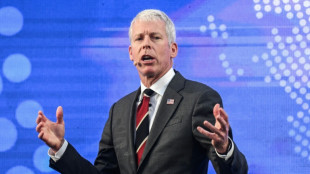 US threatens to leave IEA if net zero focus remains
US threatens to leave IEA if net zero focus remains
-
Walmart outlines big AI ambitions as it reports mixed results

-
 Trump kicks off his 'Board of Peace,' as war clouds loom on Iran
Trump kicks off his 'Board of Peace,' as war clouds loom on Iran
-
UK pubs to stay open late if home nations reach World Cup knockouts

-
 TotalEnergies in high-stakes French trial over climate change
TotalEnergies in high-stakes French trial over climate change
-
Bosnia probes fascist salutes at Croatian singer's concert

-
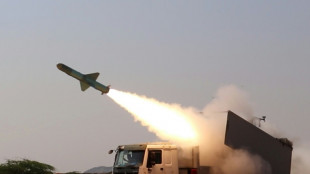 US and Israel issue dire warnings to Iran alongside US military buildup
US and Israel issue dire warnings to Iran alongside US military buildup
-
British public cheer Andrew's arrest with a smile and relief
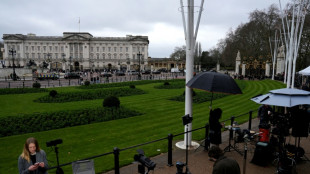
-
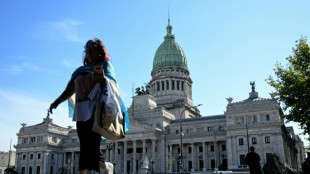 Argentine workers go on strike to protest Milei's labor reforms
Argentine workers go on strike to protest Milei's labor reforms
-
Nakai targets Olympic skating upset as 'skimo' makes debut


Water shortages plague Beirut as low rainfall compounds woes
People are buying water by the truckload in Beirut as the state supply faces its worst shortages in years, with the leaky public sector struggling after record-low rainfall and local wells running dry.
"State water used to come every other day, now it's every three days," said Rima al-Sabaa, 50, rinsing dishes carefully in Burj al-Baranjeh, in Beirut's southern suburbs.
Even when the state water is flowing, she noted, very little trickles into her family's holding tank.
Once that runs out, they have to buy trucked-in water -- pumped from private springs and wells -- but it costs more than $5 for 1,000 litres and lasts just a few days, and its brackishness makes everything rust.
In some areas, the price can be twice as high.
Like many Lebanese people, Sabaa, who works assisting the elderly, relies on bottled water for drinking. But in a country grappling with a yearslong economic crisis and still reeling from a recent war between Israel and Hezbollah, the costs add up.
"Where am I supposed to get the money from?" she asked.
Water shortages have long been the norm for much of Lebanon, which acknowledges only around half the population "has regular and sufficient access to public water services".
Surface storage options such as dams are inadequate, according to the country's national water strategy, while half the state supply is considered "non-revenue water" -- lost to leakage and illegal connections.
This year, low rainfall has made matters even worse.
Mohamad Kanj from the meteorological department told AFP that rainfall for 2024-2025 "is the worst in the 80 years" on record in Lebanon.
Climate change is set to exacerbate the county's water stress, according to the national strategy, while a World Bank statement this year said "climate change may halve (Lebanon's) dry-season water by 2040".
- Rationing -
Energy and Water Minister Joseph Saddi said last week that "the situation is very difficult".
The shortages are felt unevenly across greater Beirut, where tanks clutter rooftops, water trucks clog roads and most people on the ramshackle state grid lack meters.
Last month, the government launched a campaign encouraging water conservation, showing dried or depleted springs and lakes around the country.
North of the capital, levels were low in parts of the Dbayeh pumping station that should have been gushing with water.
"I've been here for 33 years and this is the worst crisis we've had for the amount of water we're receiving and can pump" to Beirut, said the station's Zouhair Azzi.
Antoine Zoghbi from the Beirut and Mount Lebanon Water Establishment said water rationing in Beirut usually started in October or November, after summer and before the winter rainy season.
But this year it has started months early "because we lack 50 percent of the amount of water" required at some springs, he told AFP last month.
Rationing began at some wells in June, he said, to reduce the risk of overuse and seawater intrusion.
Zoghbi emphasised the need for additional storage, including dams.
In January, the World Bank approved more than $250 million in funding to improve water services for greater Beirut and its surroundings.
In 2020, it cancelled a loan for a dam south of the capital after environmentalists said it could destroy a biodiversity-rich valley.
- Wells -
In south Beirut, pensioner Abu Ali Nasreddine, 66, said he had not received state water for many months.
"Where they're sending it, nobody knows," he said, lamenting that the cost of trucked-in water had also risen.
His building used to get water from a local well but it dried up, he added, checking his rooftop tank.
Bilal Salhab, 45, who delivers water on a small, rusted truck, said demand had soared, with families placing orders multiple times a week.
"The water crisis is very bad," he said, adding he was struggling to fill his truck because wells had dried up or become salty.
In some areas of greater Beirut, wells have long supplemented or even supplanted the state network.
But many have become depleted or degraded, wrecking pipes and leaving residents with salty, discoloured water.
Nadim Farajalla, chief sustainability officer at the Lebanese American University, said Beirut had ballooned in size and population since the start of the 1975-1990 civil war but water infrastructure had failed to keep up.
Many people drilled wells illegally, including at depths that tap into Lebanon's strategic groundwater reserves, he said, adding that "nobody really knows how many wells there are".
"Coastal aquifers are suffering from seawater intrusion, because we are pumping much more than what's being recharged," Farajalla told AFP.
As the current shortages bite, rationing and awareness campaigns should have begun earlier, he said, because "we all knew that the surface snow cover and rainfall" were far below average.
L.Davis--AMWN


